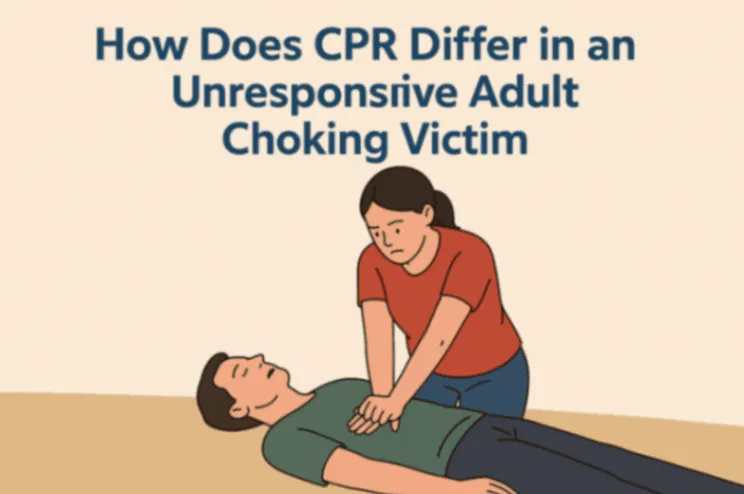A persistent cough and fever can leave you wondering: Is it just bronchitis, or could it be something more serious like pneumonia? Both conditions affect the lungs and make breathing difficult, but they differ in severity, causes, symptoms, and treatment.
Understanding these differences can help you recognize early warning signs and seek timely medical attention. In this guide, we’ll break down pneumonia vs. bronchitis, their symptoms, causes, risk factors, treatments, and prevention strategies.
Pneumonia vs Bronchitis: Here's the Difference
While both conditions cause coughing and fever, pneumonia is more severe and can be life-threatening, whereas bronchitis is usually milder and often resolves on its own.
|
Feature |
Bronchitis |
Pneumonia |
|
Affected Area |
Bronchial tubes |
Lung air sacs (called alveoli) |
|
Cause |
Mostly viruses sometimes bacteria or environmental irritants |
Bacteria Fungus Viruses |
|
Primary Symptoms |
Mild fever Cough (with mucus) wheezing |
High fever Breathing difficulty Chest pain Chills |
|
Severity |
Usually mild and self-limiting |
May be severe or life-threatening |
|
Treatment |
Anti-inflammatory medications Supportive care such as rest and fluid Breathing treatments Antibiotics in rare cases |
Antibiotics Antifungal and antiviral medications Supportive care like fluids and rest Hospitalization in severe cases |
Symptoms of Pneumonia vs Bronchitis
Symptoms of Pneumonia:
Symptoms can vary from mild to severe. While mild and moderate symptoms last for 2-3 weeks, severe symptoms may take 2 months.
|
Mild to moderate symptoms Cough, usually with phlegm Fatigue Fever (High as 105°F) Sweating Shaking chills Chest pain, especially while coughing and breathing deeply Shortness of breath Nausea, diarrhea, or vomiting Confusion, particularly in older people Blue lips due to lack of oxygen |
Severe Symptoms Bacteremia (presence of bacteria in the bloodstream) Kidney failure Lung abscesses (filling of pus in the lung tissue) Respiratory failure |
Symptoms of Bronchitis
The symptoms depend on whether it is acute or chronic bronchitis:
|
Acute bronchitis symptoms: These symptoms subside within a few days but cough can last for some weeks.
|
Chronic bronchitis symptoms: They last for about 3 months.
|
If you have difficulty breathing, persistent high fever, or a worsening cough, seek medical attention immediately.
Causes of Pneumonia and Bronchitis
Causes of Pneumonia
These are the primary causes of pneumonia:
-
Bacteria: For instance, Streptococcus pneumoniae (the common cause), Staphylococcus aureus, Haemophilus influenzae, and Legionella pneumophila.
-
Viruses: E.g. Influenza virus, Adenovirus, Respiratory syncytial virus (RSV), and Cytomegalovirus (CMV).
-
Fungi: Pneumocystis jirovecii and Histoplasma capsulatum.
-
Mycoplasma: Mycoplasma has characteristics of both bacteria and viruses.
Causes of Bronchitis
Most bronchitis is caused by viruses, but about 10% of cases are due to bacteria.
-
Viruses: Influenza virus, adenovirus, rhinovirus, respiratory syncytial virus, and coronavirus.
-
Bacteria: Mycoplasma pneumonia, Bordetella pertussis, and Chlamydia pneumonia.
-
Polluted air or dust
-
Smoking cigarettes or marijuana
Risk Factors for Developing Pneumonia & Bronchitis
Risk factors for pneumonia
These are at higher risk:
-
Adults above 65 years of age
-
Children below 5 years
-
Individuals who smoke cigarettes
-
Individuals with pre-existing health issues
Risk factors for bronchitis
These people are at increased risk:
-
Older adults
-
Past and current smokers
-
Had respiratory issues as a child
-
Have a family history of lung condition
-
Have been exposed to secondhand smoke
-
Are exposed to irritants such as smoke, fumes, pollutants, and dust
Treatment for Pneumonia vs. Bronchitis
Treatment for Pneumonia
Treatment depends on the cause and severity of the condition:
1. Bacterial Pneumonia
-
Antibiotics: Antibiotics for pneumonia include amoxicillin-clavulanate, amoxicillin, doxycycline, and macrolides.
-
Hospitalization: In case of low blood pressure, high fever, and trouble breathing, the providers may ask for hospitalization. Oxygen therapy and intravenous antibiotics may be given.
2. Viral Pneumonia:
-
Antiviral medications: Amantadine, ribavirin, rimantadine, acyclovir, or zanamivir may be prescribed.
-
Supportive care: Pain medications, fever reducers, fluids, and rest are the base of the treatment.
3. Fungal Pneumonia:
-
Antifungal medications: Antifungals such as fluconazole or itraconazole are prescribed for the treatment of fungal pneumonia.
Treatment for Bronchitis
The treatment depends on the cause & severity of symptoms.
1. Acute Bronchitis:
-
Antiviral medications: Drugs like zanamivir and oseltamivir are recommended if it is viral bronchitis.
-
Antibiotics: Antibiotics such as aminopenicillins, macrolides, and doxycycline are prescribed if it is caused by bacteria.
-
Supportive care: Rest to allow the body to heal and proper hydration to make mucus thin so that it easily comes out through coughing.
-
Over-the-counter cough medications: Cough medicine for bronchitis includes cough suppressants such as dextromethorphan or expectorants like guaifenesin to relieve cough.
-
Humidifier: Humidifiers or steamy showers can keep the airways moist and ease the breathing process.
2. Chronic Bronchitis:
-
Bronchodilators: Anticholinergics and beta-2 agonists are the types of bronchodilators that aid in opening the airways which helps with easier breathing.
-
Corticosteroids: These anti-inflammatory medications help prevent swelling in the airways.
-
Mucolytics: A study states that these drugs make the mucus thin which helps with easy removal of mucus through coughing.
-
Oxygen therapy: The providers may recommend oxygen therapy in severe cases to improve blood oxygen levels.
-
Pulmonary rehabilitation: This helps improve strength, breathing, and overall fitness.
-
Lifestyle changes: Avoiding secondhand smoke, quitting smoking, and reducing exposure to air pollution can alleviate symptoms and their worsening.
How to Prevent Pneumonia and Bronchitis
To prevent bronchitis and pneumonia, focus on these preventive measures:
-
Avoid smoking: The major cause of acute and chronic bronchitis and pneumonia as smoking can cause damage to the lungs.
-
Reduce exposure to secondhand smoke: If there are smokers in the room, ask them to smoke outside.
-
Avoid irritants: If you are sensitive to dust, fumes, allergens, or any irritants, reduce your exposure to them.
-
Stay away from sick people: If there is someone with respiratory issues around you, wear a mask or avoid them completely to avoid getting an infection.
-
Use a humidifier: Making the air moist prevents irritated airways.
-
Get adequate rest: Giving the time for proper healing, enough rest helps the body to fight against infection.
-
Eat nutritious foods: A healthy, well-balanced diet can aid in strengthening the immune system, helping combat infections.
-
Wash the hands frequently: Wash the hands, especially before eating or after being in public settings to get rid of germs that cause respiratory infections.
-
Manage chronic conditions: Managing pre-existing conditions like diabetes, asthma, lung disease, or heart issues can make you less prone to pneumonia.
-
Limit alcohol use: Excessive alcohol intake can contribute to a weak immune system which makes it difficult to fight off infections.
-
Get vaccinated annually: Get a pneumococcal vaccine, influenza (flu) vaccine, and COVID-19 vaccine to protect against Streptococcus pneumoniae, flu, and COVID-19 respectively.
Why Is Pneumonia Considered More Dangerous?
Pneumonia is dangerous as it leads to pus or fluid-filled air sacs that interrupt the lungs’ ability to inhale oxygen and exhale carbon dioxide. This, in turn, leads to severe complications which are more common in infants, elderly people, young children, and individuals with pre-existing health issues and weak immune systems. Those complications include:
-
Sepsis (extreme reaction to an infection, causing organ damage and even death if left untreated).
-
Lung abscess (pus-filled cavity in the lung)
-
Respiratory distress syndrome, a condition marked by difficulty breathing, especially in premature newborns due to stiff and fluid-filled lungs.
When to See a Doctor?
If the symptoms of pneumonia and bronchitis are worsening or become severe, consult a doctor to prevent the progression of the illness. In addition, speak with the healthcare providers, if you experience the following symptoms:
-
High fever (higher than 100.4°F) that lasts for many days
-
Sudden or sharp chest pain on one side
-
Cough that lasts for more than 3 weeks
-
Blood in mucus
-
Quick breathing
-
Shortness of breath
-
Shaking chills
-
Confusion or drowsiness
Final Thoughts
Understanding the difference between pneumonia vs bronchitis in terms of symptoms, causes, severity, and treatment can help with early detection and treatment. Bronchitis comes with mild symptoms but pneumonia can be life-threatening and may need antibiotics and hospitalization. If you struggle with persistent cough, difficulty breathing, or fever, see a doctor immediately before it leads to complications.
Frequently Asked Questions
What are the first signs of walking pneumonia?
Fatigue, sore throat, chills, headaches, and other flu or cold-like symptoms are the first signs of walking pneumonia.
What stage of pneumonia is coughing?'
Coughing is present in "stage 1" and is called congestion which is marked by inflammation and fluid buildup in the lungs.
Can bronchitis turn into pneumonia?
Yes, bronchitis can turn into pneumonia if left untreated. This occurs when the infection passes from the airways to the lungs.
What are the early warning signs of pneumonia?
Those signs include persistent cough, shortness of breath, chills, fever, and chest pain, particularly while coughing or breathing.
Can the body clear pneumonia on its own?
Yes, viral pneumonia can subside on its own with rest. However, severe cases need medical interventions like antibiotics and hospitalization.
Is bronchitis contagious?
Yes, acute bronchitis can spread to others through coughing, sharing personal items, and sneezing, as it is caused by bacteria and viruses.
Is bronchitis a side effect of COVID-19?
Yes, it is! Coronaviruses can impact the respiratory system which can lead to bronchitis.
Reviewed by







